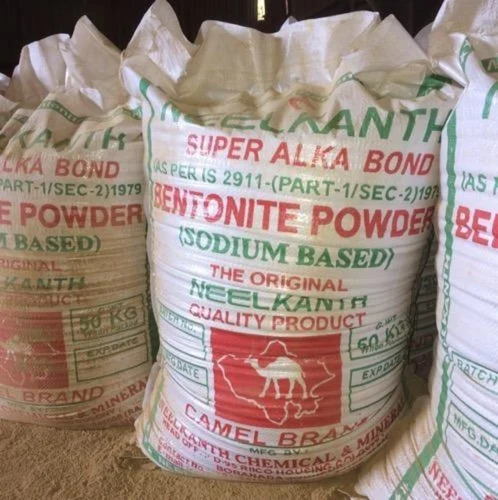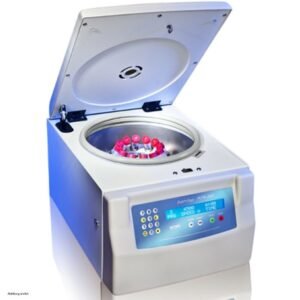
Bentonite powder has become a crucial component in various industries due to its unique properties, especially in earthing systems. If you’re involved in Horizontal Directional Drilling (HDD) or any other construction projects, understanding how to use bentonite powder and its applications can be a game-changer. In this guide, we will dive into the uses of bentonite powder for earthing, its benefits, applications, and frequently asked questions (FAQs).
What is Bentonite Powder?
Bentonite is a natural clay material known for its water-absorbing and swelling properties. It forms a gel-like structure when mixed with water, making it useful in several industries, including earthing and drilling. This powder is typically made from volcanic ash and contains high levels of montmorillonite.
How to Use Bentonite Powder for Earthing?
Bentonite powder is widely used for earthing applications due to its high conductivity and moisture retention capabilities. Here is a step-by-step guide on how to use it:
- Excavate the Area: First, you need to dig a trench or borehole where the earthing electrode will be placed.
- Prepare Bentonite Slurry: Mix the bentonite powder with water in a large container. The recommended ratio is typically 5–10% bentonite powder by weight. Stir until you get a thick, homogenous slurry.
- Pour the Slurry: Slowly pour the bentonite slurry into the trench or borehole, surrounding the earthing rod or electrode.
- Backfill the Trench: Once the earthing rod is in place, cover it with soil and compact it to remove air pockets. The bentonite slurry will absorb moisture from the soil and increase the conductivity.
- Bentonite powder ensures low resistance, making your earthing system more efficient and durable.

Benefits of Using Bentonite Powder for Earthing
Bentonite offers numerous advantages that make it the preferred choice for earthing applications:
1. High Moisture Retention
Since bentonite is a natural material, it doesn’t degrade or require replacement as often as other earthing materials, offering a long-lasting solution for grounding systems.
2.Enhances Conductivity
Compared to other earthing compounds, bentonite is highly cost-effective due to its abundance and easy availability, making it an ideal solution for various projects.
3.Long-Lasting Solution
Once the pilot hole is drilled, a reaming tool is used to enlarge the hole to the required diameter for the installation of the pipe or conduit.
4.Cost-Effective
Finally, the desired pipeline or conduit is pulled back through the enlarged hole, completing the installation with minimal surface disruption.
Applications of Bentonite Powder in Earthing Systems
Bentonite is versatile and can be used in several applications related to earthing and drilling:
- Electrical Earthing: Bentonite is widely used in grounding systems to enhance electrical conductivity and reduce the risk of electrical faults.
- Substation Earthing: Many electrical substations use bentonite for earthing purposes due to its moisture retention properties.
- Construction Sites: It can be used for temporary earthing in construction sites to protect workers from electrical shocks.
How Bentonite Powder is Used in Horizontal Directional Drilling (HDD)
In HDD, bentonite is primarily used as a drilling mud to lubricate the drill bit, stabilize the borehole, and remove cuttings. Here’s how it’s done:
- Mixing: Bentonite is mixed with water to create drilling mud. The typical concentration is around 50–60 pounds of bentonite per 100 gallons of water.
- Pumping: The bentonite slurry is then pumped into the borehole where it lubricates the drill bit, reducing friction and preventing the borehole walls from collapsing.
- Removal of Cuttings: The drilling mud carries the cuttings to the surface where they can be filtered out and the bentonite slurry reused.
This method ensures the longevity of equipment and the integrity of the borehole, making it an essential element in HDD operations.
FAQs on Bentonite Powder
1. What type of bentonite is used for earthing?
Sodium bentonite is commonly used for earthing due to its superior swelling and moisture retention properties compared to calcium bentonite.
2. How much bentonite powder is required for earthing?
Typically, 10–15 kg of bentonite powder is required for earthing, depending on the soil condition and the size of the earthing electrode.
3. Can bentonite be used in all soil types?
Yes, bentonite is compatible with almost all types of soil, especially sandy or rocky soil, where it can improve moisture retention and conductivity.
4. How long does bentonite last in the ground?
Bentonite can last indefinitely in the ground as it is a natural material and does not degrade over time.
5. Is bentonite eco-friendly?
Yes, bentonite is a natural, eco-friendly material. It doesn’t harm the environment and is safe to use in earthing applications.
Conclusion
Bentonite powder is a versatile and essential material for earthing and Horizontal Directional Drilling (HDD) applications. Its high moisture retention, enhanced conductivity, and cost-effectiveness make it a go-to solution for both temporary and permanent earthing systems.
To learn more about how bentonite powder can enhance your earthing systems or for drilling needs, visit Petropath Fluids India Pvt. Ltd.



